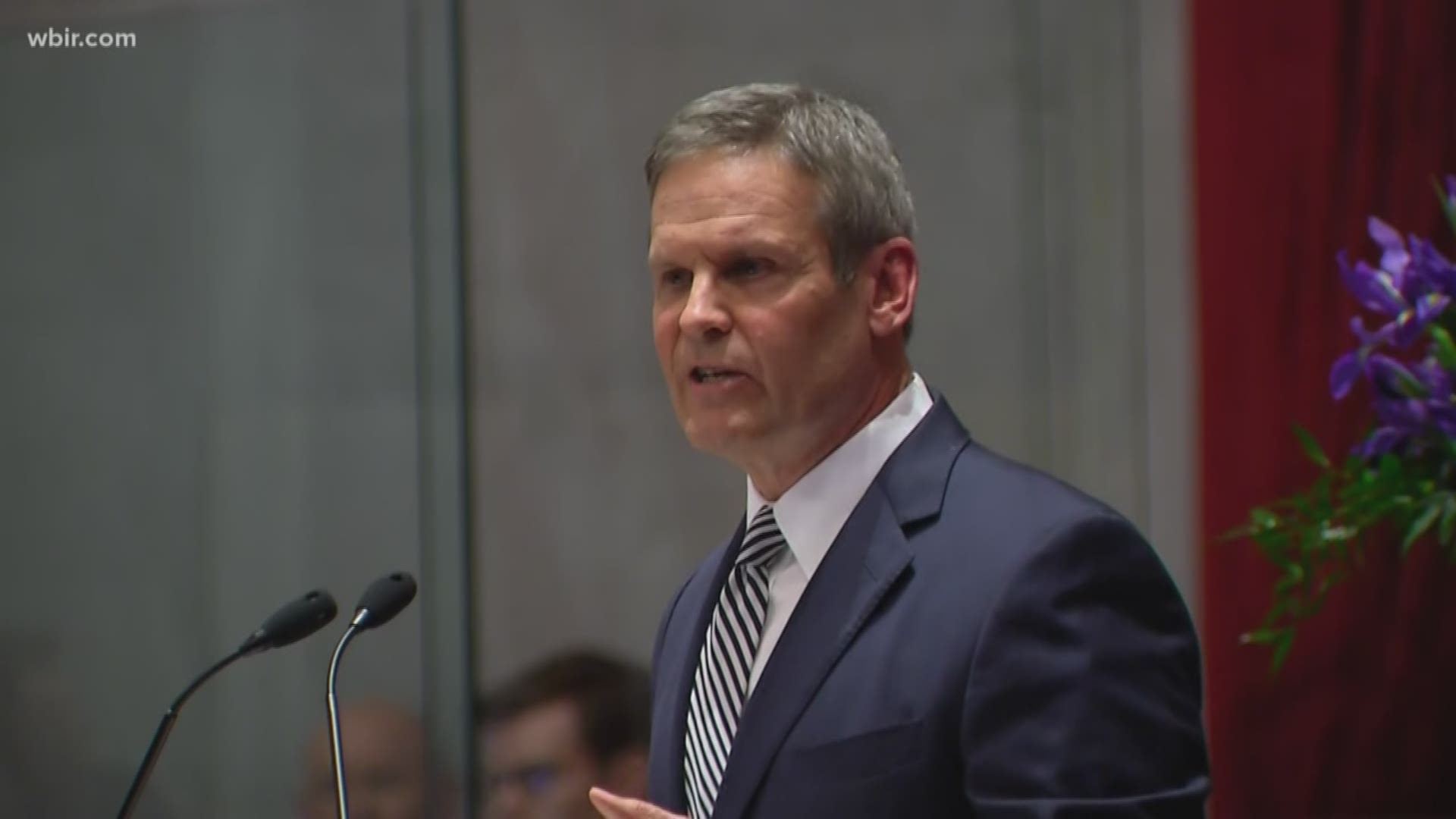NASHVILLE, Tenn. — Tennessee Gov. Bill Lee on Monday unveiled his long awaited school-choice agenda, announcing a sweeping proposal that would boost the number of parents who can use education savings accounts to pay tuition at private elementary and secondary schools.
While addressing lawmakers during his first State of the State, Lee said he wants to devote $37.4 million more in the upcoming fiscal year to help increase school choice throughout Tennessee. The majority of that funding would be slated toward a new education savings account program.
"My ESA plan will strengthen public schools and provide choices for parents at the same time," Lee said. "Creating competition will provide a new incentive for schools to improve and provide new opportunities for thousands of students."
Education savings accounts are the latest offshoot of traditional school voucher programs after previous proposals stalled in the Republican-dominated Statehouse because of skeptical lawmakers uneasy about possibly taking away funding from public schools.
Even with the new voucher face-lift, ESAs still face opposition — often from teachers unions and other public education groups — due to concern the programs are a workaround to existing bans on giving public dollars to religious organizations, in this case schools, under a system that could easily be abused.
"I know there's concern that programs like this will take money away from public schools, but my ESA plan will invest at least $25 million new dollars in public schools in the first year to fill the gap when a student transfers to another school," Lee said in his prepared remarks.
However, the idea has gained traction through the years and has been deemed a top priority by President Donald Trump's administration with the help of Education Secretary Betsy DeVos.
School choice was also touted as a top issue when Lee was on the campaign trail. Furthermore, once in office, Lee appointed pro-voucher members to top adviser positions.
Currently, five states allow some sort of ESA: Arizona, Florida, Mississippi, Tennessee and Nevada. The Nevada Supreme Court struck down its state's law after ruling that the funding mechanism was unconstitutional.
In Tennessee, the existing program is fairly small. Parents of students with certain disabilities can withdraw their children from public school and then receive up to $6,000 to pay for private educational services.
Lee's plan would allow parents of students in certain low-income districts with three or more schools ranked in the bottom 10 percent to receive $7,300 from a government-authorized account to pay for approved expenses.
Enrollment will be limited to 5,000 students in its initial year, but the cap will increase by 2,500 students if the enrollment maximum is met.
Along with ESAs, Lee wants to double the facility funding available to Tennessee's public charter schools by adding $12 million next year. Lee's administration says it wants the State Board of Education to develop standards that ensure only high-quality charter schools are authorized.
Lee's total budget proposal hovers at $38.55 billion.
Highlights in the budget include $71 million for 2.5 percent teacher salary raises, boosting the state's rainy day fund to $1.1 billion and increasing the number of correctional officers to address the state's prison staff shortages. Monday's address did not include any mention of expanding Medicaid eligibility in Tennessee, an option Lee has often spoken out against despite health care advocates urging the governor to do so.
►10Investigates: Hospitals scrambling to meet ER demand after Tennova closure
Lee has also highlighted the need to improve civic education throughout Tennessee focused on "American exceptionalism."
"In the last year, it was reported that young people between the ages of 18 and 29 in this country have a more favorable view of socialism than capitalism," Lee said. "And last week I read about a recent study that said in 49 of 50 states a majority of residents would fail the U.S. citizenship test. I can't help but feel that these two statistics are somehow connected."
Copyright 2019 The Associated Press. All rights reserved. This material may not be published, broadcast, rewritten or redistributed.

